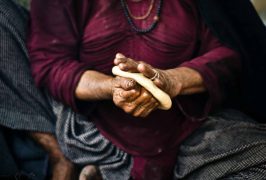This case concerned sex discrimination in the Indian Act, in relation to registration for “Indian status”.
LEAF intervened before the Ontario Court of Appeal.
Facts
Dr. Lynn Gehl is an Algonquin-Anishinaabe woman with more than five continuous generations of Indigenous ancestry. She sought registration as an “Indian” under the registration system in the Indian Act, colloquially referred to as “Indian status”. Under the Indian Act, children with two status Indian parents receive full status, whereas children with only one status Indian parent receive partial status. Those with full status could pass on Indian status to their own children, regardless of the Indian status of the other parent. Those with partial status, however, could pass on status to their children only if the other parent also had either full or partial Indian status.
Aboriginal Affairs and Northern Development Canada (AANDC, now Indigenous and Northern Affairs Canada) denied Dr. Gehl’s registration application. The AANDC Registrar determined that Dr. Gehl did not qualify for Indian status because her grandmother had not identified Dr. Gehl’s grandfather on her child’s birth certificate. Pursuant to AANDC’s Proof of Paternity Policy, if the father was not listed on the birth certificate, he was assumed to be non-Indian.
Dr. Gehl brought an action for a declaration that the Indian Act violated s. 15(1) of the Charter and for related relief. The action was dismissed and Dr. Gehl appealed to the Ontario Court of Appeal.
Arguments
LEAF argued that the registration provisions of the Indian Act, as they were implemented by the Proof of Paternity Policy, created a distinction based on sex and marital status and were discriminatory. The parent who would be disadvantaged by this policy would inevitably be a woman, since it is men rather than women who are unstated on birth certificates. The provisions served to “widen the gap” between Registered Indian women and other members of society and failed to account for the lived realities of Registered Indian women who could not prove the paternity of their children.
Outcome
The Ontario Court of Appeal found that the decision to deny Dr. Gehl Indian status was unreasonable, and declared that she was entitled to Indian status. One of the three judges adopted an approach which considered the impact of the policy on the equality rights of Indigenous women, in line with LEAF’s arguments. The other two judges declined to use the Charter, and instead applied administrative law analysis to decide the case.
LEAF is grateful to Renée Pelletier and Krista Nerland, counsel in this case.
Download the factum here.
Read the Ontario Court of Appeal’s decision here.
Our records are imperfect, but we are doing our best to update them – if you were involved with LEAF on this case but your name is not reflected here, please email us at [email protected].
